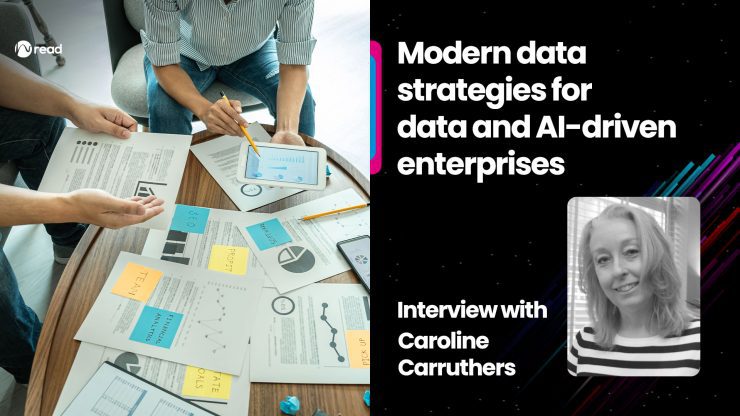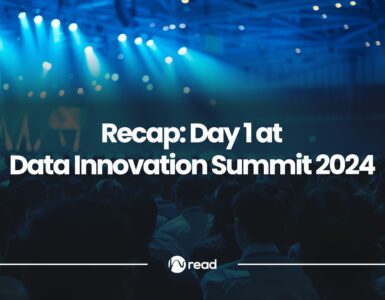Having a robust data strategy enables organisations to utilise the most valuable asset that never depletes and drive transformation across the business. Yet, paradoxically, very few companies have been able to see the benefits in the balance sheet from their data. It makes one wonder ”What is really happening with Data Strategy, and what should you be thinking about to get it right?”
Caroline Carruthers, CEO at Carruthers and Jackson, shared what a modern data strategy should look like in order to support the business and enable transformation, as well as the most common mistakes that companies make when creating their data strategy. Caroline will be talking more about Modern data strategies for data and AI-driven enterprises during the Data Innovation Summit 2021.
Learn more about the Data Innovation Summit
Hyperight: Hello Caroline, it’s a pleasure to welcome you to the Data Innovation Summit as a Keynote speaker. Before we go with further questions, what would you tell us about yourself as an intro to our discussion?


Caroline Carruthers: Hi, there and thanks for welcoming me to the Data Innovation Summit, I’m really excited to do this. I suppose most people in the data world either know me because I am the co-author of two best-selling books on data ‘The Chief Data Officers Playbook’ and ‘Data-Driven Business Transformation’ or from the Data Leaders Summer School that I run every summer, I really am a total data cheerleader and think that the only thing limiting us right now with data is our imagination.
Hyperight: Your Data Innovation Summit session is on Modern Data Strategies for Data and AI Driven Enterprises. As a bit of segue to your session, what should a modern data strategy look like in order to support an AI-driven enterprise?
Caroline Carruthers: The most important thing that a lot of organisations miss when it comes to a data strategy is that, first and foremost, it has to underpin your business strategy. Unless you are a data only company then your purpose is to do something, so clearly explain how you are going to use data to do that something better and with less risk. For me, the strategy has to be a living, breathing document that you refresh and check back to; it’s your yellow brick road.


Hyperight: We know that when we mention data strategy, we usually think of technology. What is the role of the people in implementing data strategy?
Caroline Carruthers: I would say that people are much more critical to making a data strategy work than technology, to put it into context. We use our model for assessing the maturity of an organisation when it comes to using data, based on our practical real-world experience of being data leaders. It covers the 12 aspects that an organisation needs to work on to get the most from their data and in that model one of the 12 refers to technology whereas People have a quadrant all to themselves. For me, it’s really simple; we talk about how data drives digital but not enough about how people drive data. I’d like to change that.
Hyperight: What are the common challenges organizations face with creating and implementing data strategies?
Caroline Carruthers: Firstly, they start and think about technology first and most organisations now suffer from ‘we tried that but it didn’t work’ syndrome.
Hyperight: As the last point, do you agree with the statement that every company in the future will be a data company? And how will that transformation impact businesses?
Caroline Carruthers: I totally disagree. I think every company should be a data-enabled company, not a data company and I think it’s important that we know the difference between them. A Data company exists to focus on nothing but the data like Google, for instance, a data-enabled company uses data as a real asset and does whatever its purpose is, better, faster with less risk.














Add comment